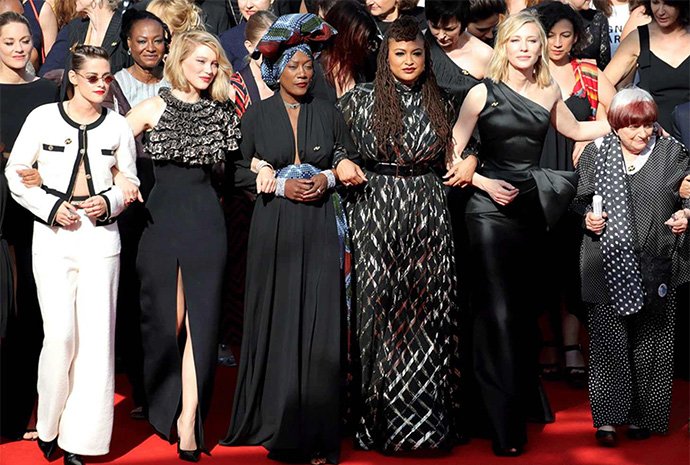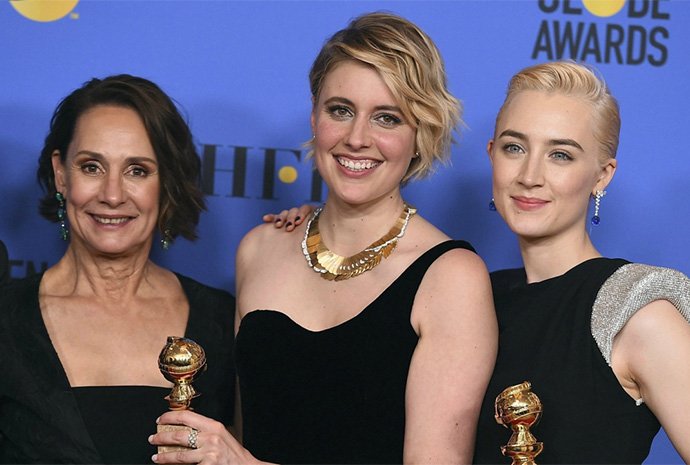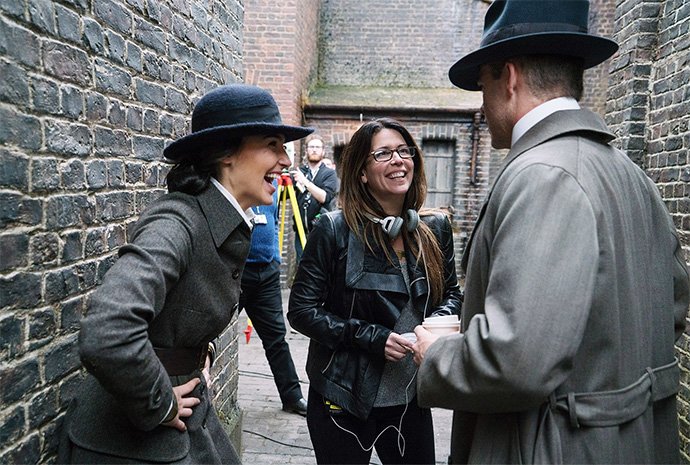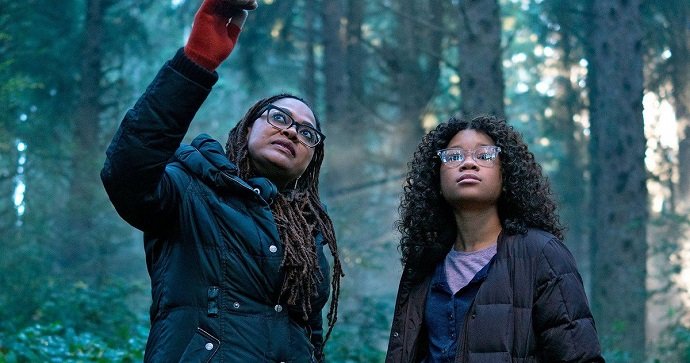It has been a time of change. With the #MeToo campaign, we see women rise up to men, determine to be seen, heard and earn as much as men. In February, Greta Gerwig stood tall and proud as the only female nominated director at the Academy Awards, a feat on its own, since female nominated directors are few and far between. In the same month, we also saw a female director- Ava DuVernay, at the helm of a major Hollywood production- A Wrinkle In Time, starring heavyweights like Oprah Winfrey, Reese Witherspoon and Mindy Kaling, with Chris Pine as the token guy.

In a ground-breaking move, Cate Blanchett led a majority female jury in this year’s Cannes Film Festival, and gathered a total of 82 women, a reference to the number of female directors who made it up the steps of the Palais, the festival’s central theatre, since Cannes Festival began in 1942. All these positive changes only mean we can expect more great work to come out from women directors, and here are five we’d love to see more of:

Her crowning glory is also her virgin effort. With Lady Bird, Gerwig put herself on the world map. The movie won the Best Motion Picture – Musical or Comedy at the 75th Golden Globe Awards, and received two Academy Award nominations, for Best Director and Best Original Screenplay, as well as Golden Globe and BAFTA nominations for Best Screenplay. Gerwig is only the fifth woman to be nominated as Best Director at the Oscars, not bad for her solo directorial debut. Gerwig began her career as an actress before turning her sights on writing and directing. If her first movie has gotten so many accolades, we can’t wait for her subsequent works.

In 2003, Jenkins directed Monster, which earned Charlize Theron an Academy Award for Best Actress. Theron’s star power all but shadowed the fact that Jenkins created a gritty story of serial killer Aileen Wuornos, a former prostitute who was executed in Florida in 2002 for killing six men in the late 1980s and early 1990s. She was originally slated to direct Thor: A Dark World but left within two months of being appointed due to creative differences. After a couple more projects that fell through, Jenkins finally return to the big screen with Wonder Woman. Released at a time of change, the film could not be a better representation of girl power and what women can do.
Wonder Woman went on to set a number of box office records, being the sixth-highest-grossing superhero film domestically and 22nd-highest-grossing film in the United States. It earned a staggering USD821 million worldwide, making it the tenth highest-grossing film of 2017 and helped the DC Extended Universe to break through USD3 billion at the worldwide box office, making it the fourteenth-highest-grossing film franchise of all time. We’re now counting down the days to Wonder Woman 2.

Way before directing the fantasy A Wrinkle in Time, DuVernay walked away with the directing award in the U.S. dramatic competition at the 2012 Sundance Film Festival for her second feature film Middle of Nowhere. She was the first African-American woman to win the award. DuVernay started out in journalism but switched trades because she felt disillusioned. She then switched to Public Relations, and finally moved to directing. DuVernay began with documentaries and slowly made her way to feature films. Her first big project was Selma in 2014, based on the 1965 Selma to Montgomery voting rights marches led by James Bevel, Hosea Williams, Martin Luther King, Jr. and John Lewis. The film received four Golden Globe Award nominations, including Best Motion Picture – Drama, Best Director and Best Actor and won for Best Original Song and was nominated for Best Picture at the Academy Awards.
With A Wrinkle in Time, DuVernay became the first African-American woman to direct a live-action film with a sizeable budget of between USD150 million and USD250 million. She’ll next direct a movie based on the DC comic book series, The New Gods.
Niki Caro

New Zealander Caro brought us the critically acclaimed Whale Rider in 2002. The film won a number of awards at international film festivals. Interestingly, Caro didn’t attend any film-making schools, she was self-taught, which makes her achievements even more impressive. Since Whale Rider, Caro directed her first Hollywood movie, North Country (2005), starring Charlize Theron, and subsequently directed The Zookeeper’s Wife (2017), starring Jessica Chastain, about the true story of how Jan and Antonina Żabiński rescued hundreds of Jews from the Germans by hiding them in their Warsaw zoo during World War II.
She’s recently been picked Disney (only the second woman director hired by Disney) to direct a movie budgeted at over USD100 million, helming a live-action version of Disney's live-action Mulan.

Taylor-Johnson’s feature film debut Nowhere Boy (2009), based on John Lennon’s childhood experiences, made waves and was nominated for a BAFTA. Since then, she has dabbled in a string of work including music, film and television. She beat out contenders like Angelina Jolie, Steven Soderbergh, Ryan Murphy, Joe Wright, and even Gus Van Sant to direct the first of the Fifty Shades series. It's a rare feat for a female director to be at the helm of a blockbuster. Taylor-Johnson has shown us her stylish and artistic eye and we can’t wait to see more of her works.
Bigelow may be the most successful female director of all time.Bigelow may be the most successful female director of all time. She’s the first woman ever to win an Academy Award for Best Director for The Hurt Locker (2008). Bigelow made her feature film directorial debut in 1982 with The Loveless (1982), a biker film that she co-directed with Monty Montgomery, which incidentally, is Willem Dafoe’s first starring role. She went on to direct ten other films before The Hurt Locker, including films like Blue Steel (1989) Point Break (1991) and K19: The WidowMaker (2002).
After the historic win for The Hurt Locker, Bigelow seems to have found her niche in bringing to the big screen important but difficult stories. In 2012, she directed Zero Dark Thirty, which told the story of the nearly decade-long international manhunt for al Qaeda leader Osama bin Laden after the September 11 attacks and most recently, Detroit (2017), which is based on the Algiers Motel incident during Detroit's 1967 12th Street Riot. The film received positive reviews from critics on her direction.
With this deep pool to choose from, let’s hope for more movies with substance from these and more female directors.










